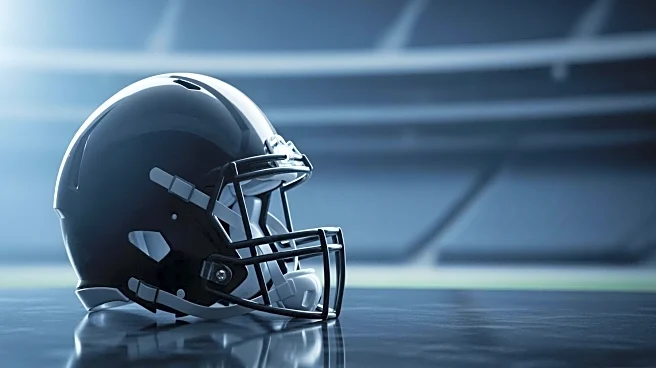What's Happening?
Dallas Cowboys defensive end Marshawn Kneeland was found dead from a self-inflicted gunshot wound after a series of events involving a police pursuit in Texas. The incident began when Texas Department
of Public Safety troopers attempted to stop a vehicle for a traffic violation near Frisco. The driver, later identified as Kneeland, did not comply, leading to a pursuit. The vehicle was later found crashed, and Kneeland fled on foot. Authorities received information suggesting Kneeland had expressed suicidal thoughts. He was discovered deceased early Thursday morning. The Dallas Cowboys and Kneeland's agent confirmed his death, expressing deep sorrow and extending condolences to his family and loved ones.
Why It's Important?
The death of Marshawn Kneeland, a promising young NFL player, has sent shockwaves through the sports community. Kneeland, who was drafted by the Cowboys in 2024, had shown significant potential on the field. His passing highlights the mental health challenges faced by athletes, often under immense pressure to perform. The incident underscores the importance of mental health support within professional sports organizations. The NFL Players Association has expressed its condolences and emphasized the need for support systems for players. Kneeland's death is a tragic reminder of the critical need for mental health awareness and resources in high-pressure environments.
What's Next?
The Collin County Medical Examiner’s Office will determine the official cause and manner of Kneeland's death. Meanwhile, the Dallas Cowboys and the NFL community are likely to focus on providing support to Kneeland's family and teammates. The incident may prompt discussions within the NFL regarding mental health resources and support for players. The Cowboys, currently in their bye week, are scheduled to play their next game on November 17. The team and the league may also consider holding tributes or moments of silence in Kneeland's honor during upcoming games.
Beyond the Headlines
Kneeland's death may lead to broader discussions about the pressures faced by professional athletes and the stigma surrounding mental health issues. The NFL and other sports leagues might be encouraged to enhance their mental health programs and ensure players have access to necessary resources. This tragic event could also influence public discourse on mental health, encouraging more open conversations and reducing stigma. The incident serves as a poignant reminder of the human side of professional sports, where athletes are not immune to personal struggles despite their public personas.









